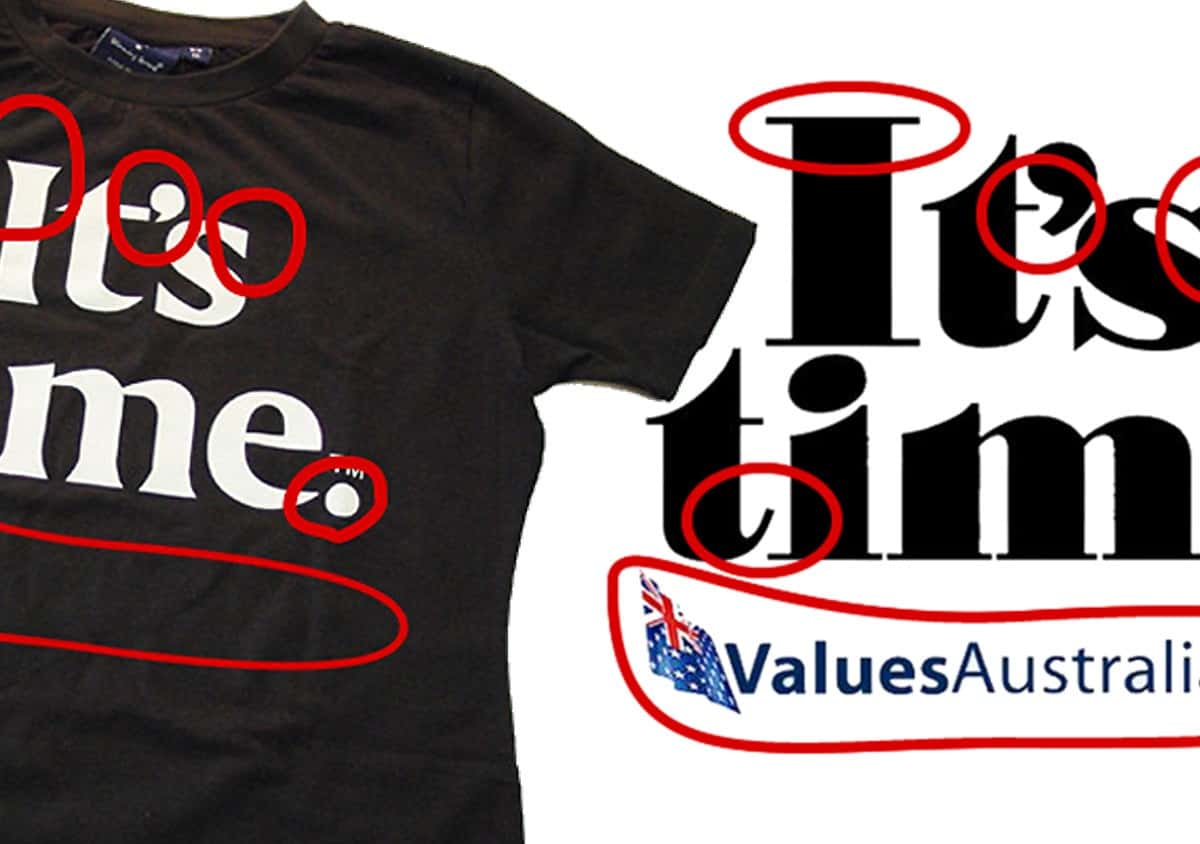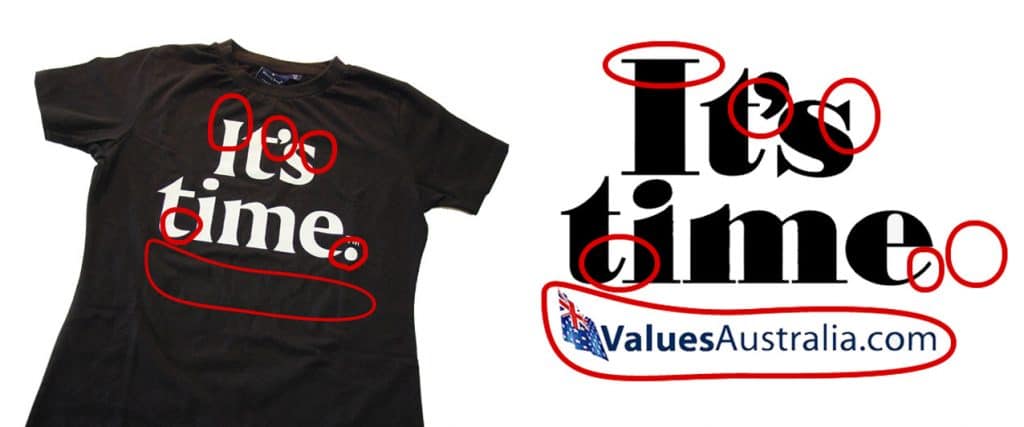A Moron in a Hurry – Part 2
It’s Me! It’s Tim!
A s you know Sir Roger has been stood over by the rozzers of the Whitlam Industry, accused of the most nefarious crimes in the most aggressive tones. Almost as terrifying as the big boys threatening him for his lunch money.
To help the dear reader understand the response which follows, here, first, are excerpts from that letter from the Whitlam Institute which was rushed by email, with a copy by snail, under the hand of one “Helen” but actually from the desk of an “Allison” (who knows?). All one really knows about “Helen” is that she appears to be a ‘torturer’, or to put it another way, ‘abominable power point presenter’.
Therefore, in the spirit of that letter Sir Roger’s amanuensis began his reply as follows:
Gosh! Comrade!
This is exciting, isn’t it? To be accused of “procuring”! Sir Roger feels he has at last achieved the heady heights of infamous celebrity enjoyed by Berlusconi and Strauss-Kahn!Who even for a moment suspected that a t-shirt splashed with the ValuesAustralia.com logo could ever be suspected of being sanctioned by the arrogant old codger? Only those who knew that The Great Man’s now immortally corporatised self is also now legally wagon-encircled.
Ought one to turn oneself in to the police tonight? Might one wait till tomorrow? Will one need to pack one’s pyjamas? What sort of a sentence do you think one might get (were you to win)?
One says, “were you to win” because who knows for sure if a judge would find that the (now ex-) t-shirt was “passing off”?
One knows you can’t. Not till the judge puts the black cap on.
Since your concern is to protect the income of the Mighty Whitlam Edifice one can inform you that the Institute has lost no income in this matter. One finds no historic record of a sale of the allegedly offensive t-shirt and it is no longer offered for sale on the Values Australia website or at cafepress.
One hopes you will forgive any language which is not cringingly fearful under the onslaught of your strident, harshly worded and school-marmish threats but, you know, this blog post (series) if it lacked some frisson, some controversy, would be terribly dull and there would be nothing to tweet about. Sir Roger’s loyal fans would be disappointed and it would damage his reputation for robustness.
One hopes indeed that you will understand that this response may contain occasionally non-legal terminology because, as Sir Roger puts it, “IANAL”. And if you are offended, well, you know, you have as much right to be offended as Sir Roger was offended that the letter purporting to be sent by you was in fact sent for you, a task you delegated to someone else, perhaps the office girl.
Who is to know?
I am the nominee of Sir Roger Migently who commissions and is senior adviser to the website ValuesAustralia (hosted in and published from the United States of America with all the implications and complications that entails).
Sir Roger has therefore directed that I endorse the enclosure on his behalf. (You may need to look carefully for the signature towards the end.)
He was shocked to hear that, what with his pension and his gold ticket and all, old Gruff is so short of cash these days that he needs every cent you can get him.
Sir Roger (benighted before Gough changed the honours system) informs me that he had quite forgotten that he had created the sparkling opportunity to ignore the … er … opportunity to which you refer and which apparently no-one saw or – certainly on the evidence and to Sir Roger’s memory – not one person wanted. Sir Roger frankly couldn’t have given a stuff about it, as he says, after the 2007 election. Its time (oops, sorry!) had passed.
So he was shocked when the rozzers from Whittling Inc sent to his amanuensis the terrifying threats of, well, who knows what dire consequences by email! To Sir Roger it felt a bit like being dumped by text (which strangely chuffed him, being down with the kids and terribly contemporary and all).
Sir Roger demands that the forensic team at UWS Legal, should they locate any remaining instances of the offending item, immediately inform Sir Roger who will forthwith speak to his people to have them deleted.
(On a side note, there are on the cafepress website very many other instances of the phrase being used on possibly tens or hundreds of
g-strings
shirts
mugs
cups
caps
dog warmers and
mouse mats,so if you wanted to pursue them – perhaps claiming piracy under extraterritoriality? – the office girl will have plenty of work to do for the next few years.)
Discovery and Observations
You assert that the Whitlam Institute has a “substantial reputation”.
Who knew?
Sir Roger would be one of the more aware people in the community, both generally and politically. He had no idea! A Whitlam Institute? Doing great and worthy works? A t-shirt?
I must say, the UWS marketing unit needs to get off its arse about this one and let the world know that Gough’s spirit lives! If Sir Roger has never heard of it, few others have.
Looking at the Whitlam Industry website now one might suspect it is less the throbbing engine of social justice and democratic advancement one might imagine than it is a back-slapping nostalgia club for the ex-famous and forgotten, a few academics writing impenetrable scholarly works with obtusely academic titles and a fresh-faced legal team jumping out of the legal bushes to surprise the disobedient.
So, trademarks and passing off
“A cause of action for passing off is a form of intellectual property enforcement … particularly where an action for trademark infringement based on a registered trade mark is unlikely to be successful.”
“Passing off … does not confer monopoly rights to any names, marks, get-up or other indicia. It does not recognize them as property in its own right.
“Instead, the law of passing off is designed to prevent misrepresentation in the course of trade to the public, for example, that there is some sort of association between the business of defendant and that of the claimant.”
There are three elements which must be fulfilled:
• Goodwill owned by a trader
• Misrepresentation
• damage to goodwill.
In Reckitt & Colman Ltd v Borden Inc [1990], Lord Oliver stated that a plaintiff must establish all of the following:
1. a goodwill or reputation attached to the goods or services
2. a misrepresentation leading or likely to lead the public to believe that the goods or services offered by him are goods or services of the plaintiff
3. that he suffers loss or damage as a consequence of the erroneous belief that the goods or services of the defendant are the goods or services of the plaintiff.
- A case may be made that goodwill attaches to items for sale by the Whitlam Institute.
However:- As for misrepresentation, not even “a moron in a hurry” (which as you know is NOT the test) would imagine that the shirt prominently displaying the ValuesAustralia logo was an offering of the Whitlam Institute. [see below]
- The website never and nowhere represents (or represented) or if you like misrepresents or misrepresented in any way, or could have, that ValuesAustralia.com was in any way affiliated with the Whitlam Institute or that the shirt was in any way approved by the Whitlam Institute. It would not have been possible to make such a claim because ValuesAustralia.com in 2007 had no knowledge (was, as it now seems, blissfully unaware) of the Institute’s existence at all or of its commercial offerings.
ValuesAustralia.com never knew, or in its wildest dreams could ever have imagined, that the two words “it’s” and “time” placed side by side, in dictionary order, were or ever would be, or for goodness’ sake ever could be trademarked by anyone.
- It is as impossible to demonstrate as it is silly to suggest that the Whitlam Institute has suffered or could have suffered loss or damage as a result of any confusion over the shirt’s provenance. As far as the writer knows no shirt was sold except for the one bought by Values Australia itself as a proof copy in 2007 and the person who bought that shirt (oneself) was, absolutely certainly, under no misapprehension whatever that the shirt was represented as a product of the Whitlam Institute. No person has ever contacted Values Australia with any question concerning the shirt’s provenance. Until now.
There never was any intent to deceive nor any intention to obtain a gain or cause a loss at the expense of the Whitlam Institute.
There never was any misrepresentation made and nor there was ever any intention in the course of trade calculated to injure the business or goodwill of the Whitlam Institute. No damage could be imagined probably to be caused, none was caused, and now certainly none can be caused in the future.
To make this point clear, I wonder if you would take a moment to view these two images and decide whether you can tell them apart, remembering that the test is not “a moron in a hurry”.
They have been placed side by side for ease of comparison). Can you tell which is which? Are you sure that the shirt on the right is not an offering, or representing itself as an offering, of the Whitlam Institute?
[Images considered fair use for this document as exhibits in a legal context]
How can you tell?
. . . End of Part 1
![]()
The “moron in a hurry” is a term in case law:
It appears to have been used first by Mr Justice Foster in the 1978 English legal case of Morning Star Cooperative Society v Express Newspapers Limited [1979] FSR 113. In this case, the publishers of the Morning Star, a British Communist Party publication, sought an injunction to prevent Express Newspapers from launching their new tabloid, which was to be called the Daily Star.
The judge was unsympathetic. He asked whether the plaintiffs could show:
a misrepresentation express or implied that the newspaper to be published by the defendants is connected with the plaintiffs’ business and that as a consequence damage is likely to result to the plaintiffs and stated that:
“if one puts the two papers side by side I for myself would find that the two papers are so different in every way that only a moron in a hurry would be misled.”
So any possible confusion by a “moron in a hurry” is insufficient to find for the plaintiff.
![]()
In our next instalment we ask:
- we share a personal moment with “Helen”
- Who really owns the phrase “it’s time”?
- Is the phrase already generic?
- What about freedom of political speech?







0 Comments